In the realm of PC building, enthusiasts often debate the necessity of various components, from high-end graphics cards to lightning-fast SSDs. Amidst these discussions, one question frequently arises: is a CPU cooler necessary? As the heartbeat of your computer, the CPU generates substantial heat during its operations. Without proper cooling, this heat can wreak havoc on performance and longevity. In this blog, we delve into the importance of CPU coolers, unraveling their role in maintaining optimal temperatures, preventing thermal throttling, and safeguarding your investment in a high-performance PC. Join us as we explore the intricacies of PC cooling and shed light on why a CPU cooler is indeed an indispensable component for any PC build.
Why Is A CPU Cooler Important?
A CPU cooler plays a pivotal role in maintaining the optimal functioning of your computer’s central processing unit (CPU). At the heart of every PC, the CPU is akin to the brain, executing countless instructions and calculations every second. However, this rapid processing generates a significant amount of heat, akin to the metabolic activity of a living organism.
Without proper cooling, this heat can accumulate rapidly, leading to thermal throttling, a process where the CPU reduces its clock speed to prevent damage from overheating. Thermal throttling not only results in decreased performance but can also compromise the lifespan of your CPU, akin to running a marathon in scorching heat without adequate hydration.
A CPU cooler effectively dissipates this heat, akin to a cooling system in a car’s engine, ensuring that the CPU operates within safe temperature limits. By facilitating efficient heat transfer from the CPU to the surrounding environment, a cooler safeguards against overheating, allowing your PC to perform optimally under varying workloads and environmental conditions.
What Types Of CPU Coolers Are Available?
When it comes to CPU cooling, there are primarily two types of coolers: air coolers and liquid coolers.
Air Coolers:
Air coolers consist of a heatsink, which absorbs heat from the CPU, and a fan or fans, which dissipate the heat into the surrounding air. They’re typically more affordable and easier to install, making them a popular choice among beginners and budget-conscious builders. Additionally, air coolers require minimal maintenance and are generally quieter than liquid coolers.
Liquid Coolers:
Liquid coolers, also known as AIO (All-In-One) coolers, utilize a closed-loop system to transfer heat away from the CPU. They feature a pump, which circulates a coolant (usually water or a water-glycol mixture) through tubes connected to a radiator. The radiator, equipped with fans, then dissipates the heat. Liquid coolers are known for their superior thermal performance, making them ideal for overclocking and high-end systems.
However, they tend to be more expensive and may require periodic maintenance to prevent pump or leak issues.
Who Needs A CPU Cooler?
Now that we’ve covered the basics of CPU coolers, you might be wondering: who needs one? The answer depends on several factors, including your PC usage and hardware configuration.
1. Gamers And Enthusiasts:
If you’re a gamer or PC enthusiast who engages in intensive tasks like gaming, video editing, or 3D rendering, a CPU cooler is essential. These activities put a significant strain on your CPU, resulting in higher temperatures. Investing in a quality cooler can help maintain stable performance and prevent thermal throttling during intense gaming sessions or demanding workloads.
2. Overclockers:
Overclocking involves pushing your CPU beyond its stock speed limits to achieve higher performance. While overclocking can yield significant performance gains, it also generates more heat. As such, overclockers require robust cooling solutions, such as liquid coolers with larger radiators or high-performance air coolers, to keep temperatures in check and prevent overheating.
3. Builders With High-End Components:
If you’ve invested in high-end hardware, such as a powerful CPU or a flagship graphics card, it’s crucial to ensure adequate cooling to protect your investment. High-performance components produce more heat, necessitating effective cooling solutions to maintain optimal temperatures and prevent thermal issues.
When Should You Install A CPU Cooler?
When it comes to installing a CPU cooler, timing is key to ensuring optimal performance and ease of installation. Consider the following points to determine the ideal timing for installing your CPU cooler:
- During Initial PC Assembly: Installing the CPU cooler during the initial assembly of your PC is often the most convenient option. This allows you to mount the cooler securely onto the CPU socket before installing other components, such as the motherboard and graphics card, which might obstruct access to the CPU socket.
- Before Installing Other Components: Prioritize installing the CPU cooler before other major components, such as RAM modules and storage drives. This ensures that you have ample space and access to the CPU socket for mounting the cooler securely without any obstructions.
- When Upgrading Or Replacing: If you’re upgrading an existing system or replacing an old CPU cooler, you can install the new cooler at any time. However, ensure that you follow proper installation procedures and compatibility checks to avoid any issues with your CPU socket, motherboard, or case.
- When Building A Custom Loop: If you’re planning to build a custom liquid cooling loop for your CPU, the installation process may be more complex and time-consuming. Plan and allocate sufficient time for assembling and testing the custom loop before powering on your PC.
By considering these factors and timing your CPU cooler installation appropriately, you can ensure a smooth and hassle-free installation process while maximizing the cooling performance of your PC.
Where Can You Purchase A CPU Cooler?
CPU coolers are readily available from a variety of sources, including online retailers, electronics stores, and PC hardware vendors. Popular online marketplaces such as Amazon, Newegg, and eBay offer a wide selection of coolers from various manufacturers, allowing you to compare prices, read reviews, and choose the best option for your needs.
Additionally, many PC component manufacturers, such as Corsair, Noctua, Cooler Master, and NZXT, sell their coolers directly through their websites or authorized resellers. Visiting their official websites can provide you with detailed product information, compatibility lists, and warranty details, ensuring a hassle-free purchasing experience.
How To Choose The Right CPU Cooler
With so many CPU coolers available on the market, choosing the right one can seem daunting. However, by considering the following factors, you can narrow down your options and find the perfect cooler for your PC build:
- Performance:
Consider the cooling performance of the cooler, including its thermal dissipation capabilities and noise levels. Look for reviews and benchmarks to gauge real-world performance and ensure it meets your requirements.
- Compatibility:
Ensure the cooler is compatible with your CPU socket and motherboard. Check the manufacturer’s specifications and compatibility lists to avoid any compatibility issues during installation.
- Form Factor:
Consider the size and clearance requirements of the cooler, especially if you have limited space in your case or if you plan to install other components nearby. Choose a cooler that fits comfortably within your case without obstructing other components.
- Budget:
Set a budget for your CPU cooler and choose a solution that offers the best value for your money. While premium coolers may offer superior performance and features, there are plenty of budget-friendly options that provide adequate cooling for most users.
- Aesthetics:
If aesthetics are important to you, consider the design and appearance of the cooler, including the heatsink, fan(s), and RGB lighting options. Choose a cooler that complements your overall build theme and enhances the visual appeal of your PC.
Conclusion
In conclusion, the question of whether a CPU cooler is necessary has a resounding answer: yes. Throughout this exploration, we’ve uncovered the critical role that CPU coolers play in maintaining the health and performance of your PC. From preventing thermal throttling to extending the lifespan of your CPU, a quality cooler is an indispensable component of any PC build, particularly for gamers, overclockers, and enthusiasts pushing their systems to the limit. By investing in a reliable CPU cooler, you not only ensure optimal temperatures and performance but also protect your hardware investment for years to come. So, when embarking on your next PC build or upgrade, remember to prioritize the inclusion of a CPU cooler for a cool, quiet, and efficient computing experience.
FAQ’s
What Happens If You Run A CPU Without A Cooler?
Running a CPU without a cooler can lead to overheating, which can cause thermal throttling, decreased performance, and in extreme cases, permanent damage to the CPU. Without a cooler to dissipate heat, the CPU’s temperature can soar to dangerous levels, compromising its stability and reliability.
Do I Need A Cooler For My CPU?
Yes, a CPU cooler is essential for maintaining optimal temperatures and ensuring the longevity of your CPU. Whether you’re a casual user or a hardcore gamer, a quality CPU cooler is necessary to prevent overheating and maintain stable performance, particularly under heavy workloads or overclocked conditions.
Does A Good CPU Cooler Make A Difference?
Absolutely. A good CPU cooler can make a significant difference in your PC’s performance and longevity. By efficiently dissipating heat from the CPU, a quality cooler helps maintain lower temperatures, preventing thermal throttling and allowing your CPU to operate at its full potential. Additionally, a good cooler can contribute to a quieter and more comfortable computing experience by reducing fan noise and maintaining consistent temperatures.






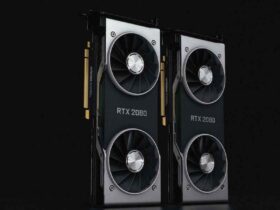

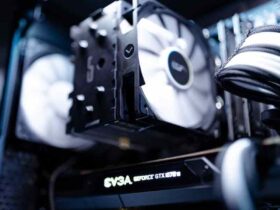










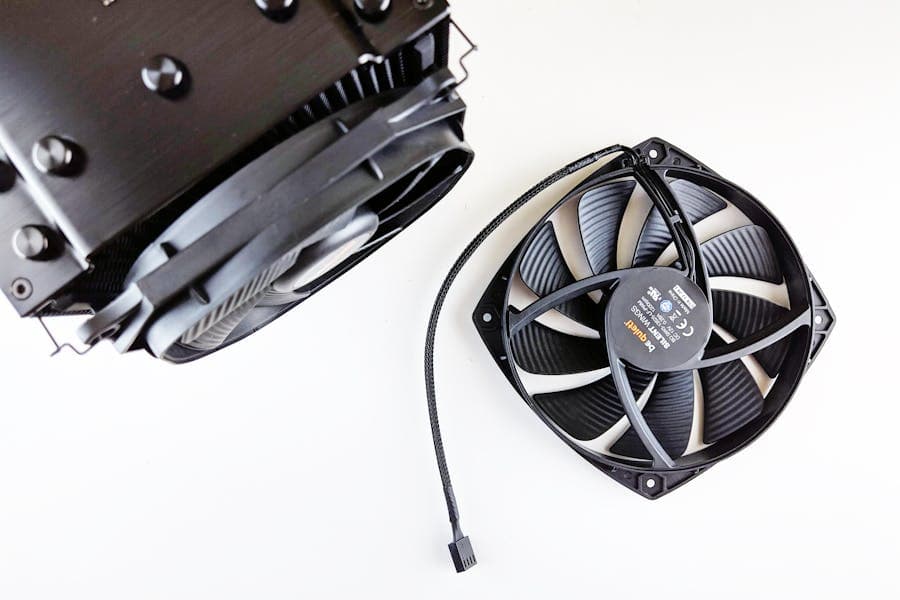

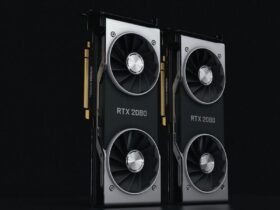

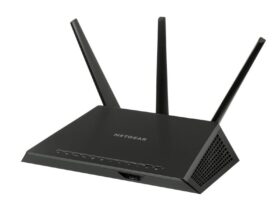
Leave a Reply